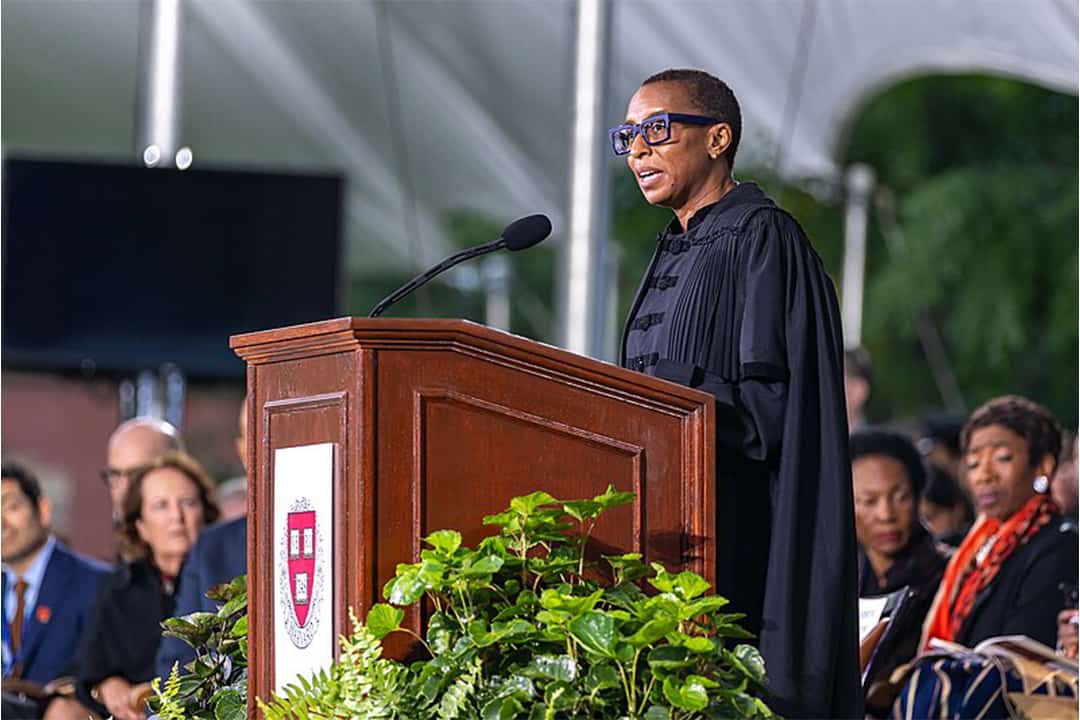She has been accused of minimizing antisemitism, calling for the genocide of Jews, and intimidating the free press. She was accused of ‘serial plagiarism’ by conservative activist Christopher Rufo, who also said she lacked the merit and competence required of arguably the most powerful academic office in North America. She was the first Black president of Harvard University, the first person of colour to hold the office, and only the second woman to do so in the institution’s almost 400-year history.
After a tense and dramatic six months, Claudine Gay resigned as president and has returned to her work as a faculty member at Harvard, where she may be lowered from the cross upon which she was left alone. Of course, her enemies cheered. She had embodied the perfect canvas on which America’s conservatives and other scrutineers of diversity, equity, and inclusion initiatives (DEI) could stage another battle for the fate of their vulnerable nation.
With Gay’s resignation came my certainty that the days of DEI were numbered and the darkest still to come. Following the striking down of affirmative action by the Supreme Court of the United States, a case in which Harvard was a defendant, America’s right-wing establishment took up their mission to rid higher education of the infestation of liberal pedagogy and rhetoric, and especially the widespread policies, practices, and initiatives that celebrated and granted privilege based on identity as a method of correcting the historical exclusion of marginalized groups.
No more taking in students simply because they presented a sob story about being Black or gay or a woman. Every student has to earn their place, especially at an institution like Harvard. After all, Martin Luther King Jr. himself dreamt of a nation where no one would be judged by the colour of their skin but by the content of their character, right?
So, to return to the glowing past of a colourblind America, where we pretended like everybody had a fair chance and operated as such, Gay had to leave. Her scholarly résumé, Los Angeles Times columnist Robin Abcarian wrote, was “thinner” than many of the presidents that came before her; her promotion from dean of the faculty of arts and sciences after only five years was suspicious and too quick.
Was she perhaps chosen for her creative and emboldening decision-making or her singular vision for a more vibrant and engaged Harvard? I guess we shall never know because such considerations must not constitute the content of one’s character. What we did come to know was that Gay’s testimony before Congress in December, following the October 7 Hamas attack on Israel and Israel’s subsequent launch of violence into Gaza, was where it all went wrong.
When New York Republican representative Elise Stefanik asked Gay whether Harvard admissions would rescind offers against applicants saying “from the river to the sea” or “intifada” to specifically advocate “for the murder of Jews,” Gay stated that the type of “hateful reckless offensive speech” was “personally abhorrent” to her. Upon Stefanik’s other question on whether calling for the genocide of Jews violated Harvard’s bullying and harassment rules, Gay responded that the school takes action depending on the context in which the language is used.
Gay clarified that individuals are not sanctioned for their political views or speech until said views and speech turn into conduct that violates the behaviour-based policies that categorize something as serious as bullying, intimidation, or calling for the genocide of an entire race or demographic.
The simple fact is that under the US First Amendment, the nation’s primary bastion of free speech, pro-Palestine students in the US are allowed to use the phrase “From the River to the Sea” to rally support for the liberation of Palestine. Pro-Israel students in the US are also allowed to use the phrase as they rally support for the expunging of Hamas. Herein lies what some may see as the uncomfortable, unsatisfactory truth about free speech: until it crosses into conduct, it is protected by the law.
As Eugene Volokh, a professor of law at the University of California, Los Angeles, reminds us in an interview with ABC News, “advocacy of genocide is sometimes protected under the First Amendment and sometimes not.” Gay’s responses to Stefanik are indicative of how some questions cannot be answered with a simple yes or no.
Gay’s responses were factually right, despite effectively laying herself into the careful trap of righteous right-wing outrage. Several legislators demanded that she resign, billion-dollar donors began to pull their funding from Harvard, and then came the accusations of plagiarism driven by Christopher Rufo’s fierce and tactical campaign.
Harvard’s board issued a statement in support of Gay, and after an independent review of the former president’s published work, it concluded that a few missing quotation marks did not qualify her resignation. Most recently, the school defended their review on January 19 through a report to a congressional committee.
Still, the scrutiny of her work grew obsessive with no regard for its content, which evidenced the link between the production of a strong democracy and the placing of previously excluded communities into halls of power. Gay grew weary of it and soon resigned.
I see a larger plot to unravel our faith in pillars of society, and characterize them as sites of liberal indoctrination and speech suppression, to be clear in the case of Claudine Gay. In a presidential election year, America’s right wing is desperate for a chance at power, pointedly fighting for the colourblind equality that they think King marched and died for; where the full content of one’s character was limited to the borders of a standardized test paper, with no concern for the stories, ambitions, talents, or social potential of America’s stakeholders.
Divine Angubua is a third-year student at UTM studying history, political science, and creative writing. He is the editor-in-chief of With Caffeine and Careful Thought and a staff writer at The Medium. He is an associate comment editor at The Varsity.



No comments to display.